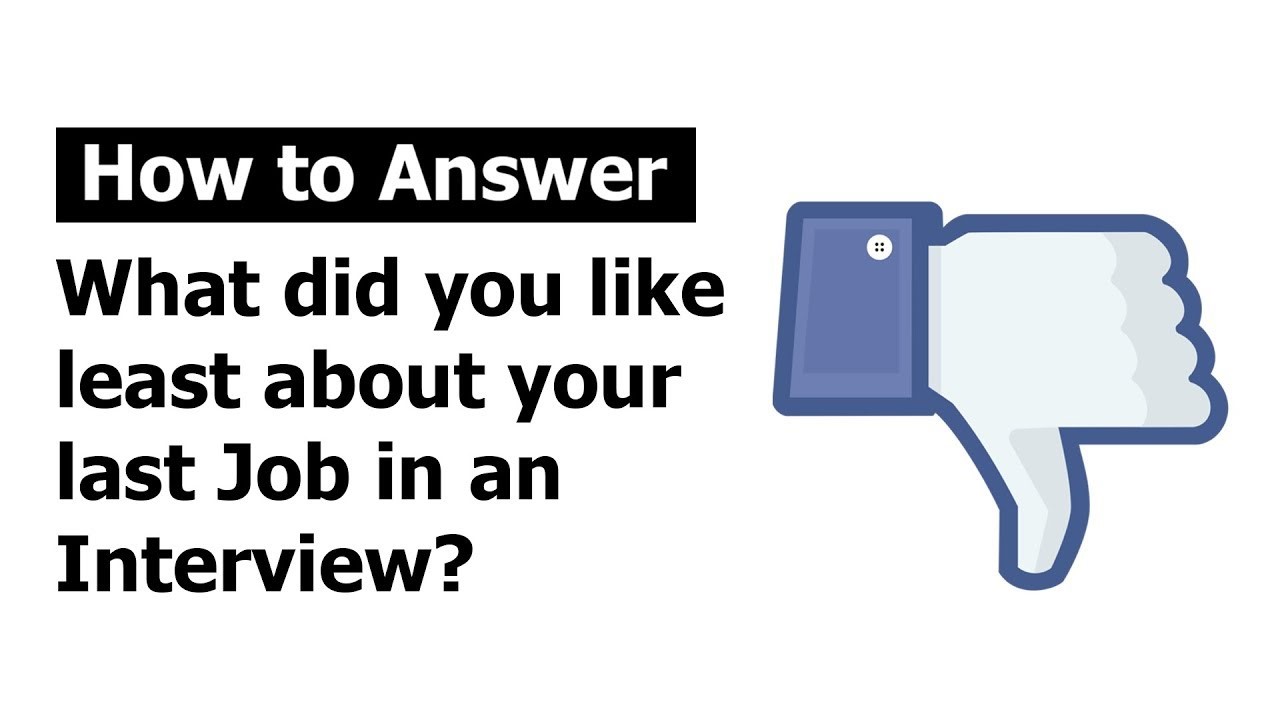
Talking about what do you like most and least about your current job can feel like walking on thin ice. Say too much, and you might come off as negative. Say too little, and you risk sounding unprepared.
Yet, this question pops up in almost every interview. Why? Employers want to know how you handle challenges and whether you will bring the same complaints to your next role.
Imagine you are in the middle of a job interview. Everything’s going smoothly. Then, the interviewer leans forward and asks, “So, what do you like least about your current job?”
Suddenly, your mind goes blank. You don’t want to badmouth your company, but you also need an honest answer. Sound familiar?
The good news? There is a way to answer this question without sinking your chances. In fact, with the right approach, you can turn it into a moment that highlights your professionalism and career goals. Here is how.
Why This Question Is Not As Tricky As It Seems
At first, questions like “What did you dislike at your previous job?” in an interview and “What did you like least about this company?” in the exit interview feel like a trap, much like the “What makes you unique?” question.
You worry about saying the wrong thing, sounding ungrateful, or accidentally throwing your current employer under the bus.
But here’s the truth: interviewers are not fishing for drama. They are looking for perspective. They want to see how you handle challenges and whether you can turn a negative into a learning experience.
Imagine if you only give sunshine-and-rainbows answers, you might come off as prepared or even a little too good to be true.
But if you share an honest challenge framed the right way, you actually show self-awareness and problem-solving skills.
The secret is balance. Be authentic, but keep it professional. Avoid personal grievances or complaints about people.
Instead, talk about things like limited growth opportunities, outdated processes, or repetitive tasks, and then move to what you have learned or how you’ve improved because of them.
Here are sample answers to What do you like least about your job?
Limited growth opportunities
“I’ve really enjoyed developing my skills in this role, but I’ve reached a point where there’s limited room for advancement.
It has helped me realise how much I value continuous learning and professional growth, which is why I’m excited about opportunities where I can take on bigger challenges and responsibilities.”
Why does it work? Shows ambition without criticising your current employer.
Repetitive tasks
“Some aspects of my current job have become a bit repetitive over time. I’ve actually used that as a chance to streamline processes and suggest small automations, which was rewarding.
But I’m ready for a role that brings more variety and creative problem-solving into the mix.”
This approach turns repetition into an example of initiative and efficiency.
Lack of cross-department collaboration
“My current role is very focused on one department, which has been great for building expertise. But I’ve found that I really enjoy collaborating across teams like marketing, product, and operations.
I haven’t had much opportunity to do that here. I’m looking for a position where cross-functional work is a bigger part of the job.”
This approach allows you to showcase teamwork and collaboration, demonstrating your value for big-picture thinking, which can be added as a plus point to your personal statement written by professional cv service.
Outdated tools or processes
“Some of the tools and systems we use are a bit outdated, which can slow down projects. On the bright side, I’ve learned how to adapt quickly and even introduced a few low-cost tools to make things easier for the team.
In my next role, I’m hoping to work in an environment that embraces more modern, efficient technology.”
This will show adaptability and a proactive approach to improvement.
Projects that don’t align with strengths
“In my current job, I occasionally get assigned projects outside my main area of strength like personal statement writing service, which can be challenging.
It has taught me a lot about flexibility, but it has also made me realise I thrive most when I can use my core skills to deliver real impact. That is what excites me about this new opportunity.”
This approach will balance honesty with a forward-looking, positive tone about the role you want.
| Answer Type | Tone & Approach | Key Strength Highlighted | Why It Works in Interviews |
| Limited Growth Opportunities | Professional, Aspirational | Ambition, Career Progression | Shows drive without criticising the current employer. |
| Repetitive Tasks | Solution-Oriented, Proactive | Initiative, Efficiency | Turns monotony into a positive skill-building moment. |
| Lack of Cross-Department Collaboration | Teamwork-Focused, Enthusiastic | Collaboration, Curiosity | Emphasises teamwork and excitement about a more dynamic environment. |
| Outdated Tools or Processes | Forward-Looking, Adaptive | Adaptability, Problem-Solving | Highlights resilience and interest in innovation without sounding negative. |
| Projects Misaligned with Strengths | Honest, Future-Focused | Self-Awareness, Strategic Thinking | Balances humility with clarity about where the candidate excels and wants to contribute. |
Conclusion
Answering “What do you like least about your current job?” doesn’t have to be a stumbling block. With the right approach, it is a chance to show self-awareness, positivity, and ambition.
By starting with what you’ve gained, keeping your critique neutral, and ending with excitement for the future, you turn a tricky question into a powerful moment in the interview.
Remember: employers want problem-solvers, not complainers. If you can prove that you learn from challenges and stay focused on growth, you will leave a strong impression and move one step closer to landing the job you want.
